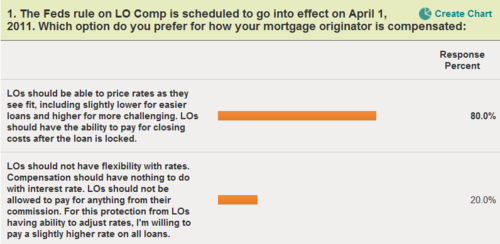EDITORS NOTE: This is an updated version of this post which was written at a time when mortgage originators could more freely use the Good Faith Estimate as a tool to communicate with their clients. Due to HUD's 2010 GFE and the accompanying restrictions, this is no longer probable. In fact, nowhere on today's Good Faith Estimate is funds for closing disclosed! Seattle area borrowers and homebuyers can still avoid surprises at escrow…hopefully these "updated" tips will help!
Your closing date on your new home is a couple of days away, your feeling a little case of the jitters…the last thing you want to deal with is to be surprised with what funds are due at your signing appointment with the escrow company.
Here's how you can clear up the funds to close issue:
- Your Mortgage Professional can provide you with an updated worksheet atleast 5 days before closing to review your funds due at closing. The worksheet may seem similar to what was used when you were obtaining quotes from your mortgage professional prior to locking or being in contract with your purchase and sales agreement.
- Verify with your Mortgage Professional if the worksheet is factoring in your earnest money deposit, deposits with the lender and any other credits (from the seller or real estate agents, for example).
- Request your Mortgage Professional obtain an estimated HUD-1 Settlement Statement from the escrow company at least two days before closing to review it for any corrections or modifications for both of you to review.
- Bring a copy of your Good Faith Estimate with you to your signing appointment. Page 3 of your estimated HUD-1 Settlement Statement will reflect if there are any discrepancies between what was quoted on your last Good Faith Estimate (which can only be reissued under specific circumstances). Some fees have different tolerances which the mortgage company may be held responsible to "cure".
What if there are errors? Try not to panic. Depending on how much time there is prior to the scheduled funding, the lender may be able to redraft loan documents if needed. A majority of our loans are funded within our credit lines so unless it involves someone having to be re-approved for a higher loan amount, loan documents can be emailed fairly easily to the escrow company. Often times, it could just be correcting a few documents and not the entire loan package.
The closing table can be an emotional time. It's in your best interest to have as many of the details worked as far in advance as possible. If you have questions or concerns, speak up. This is not the time to be bashful. This is your mortgage and one of the largest financial transactions you will make in your lifetime…get involved and take action!











Recent Comments